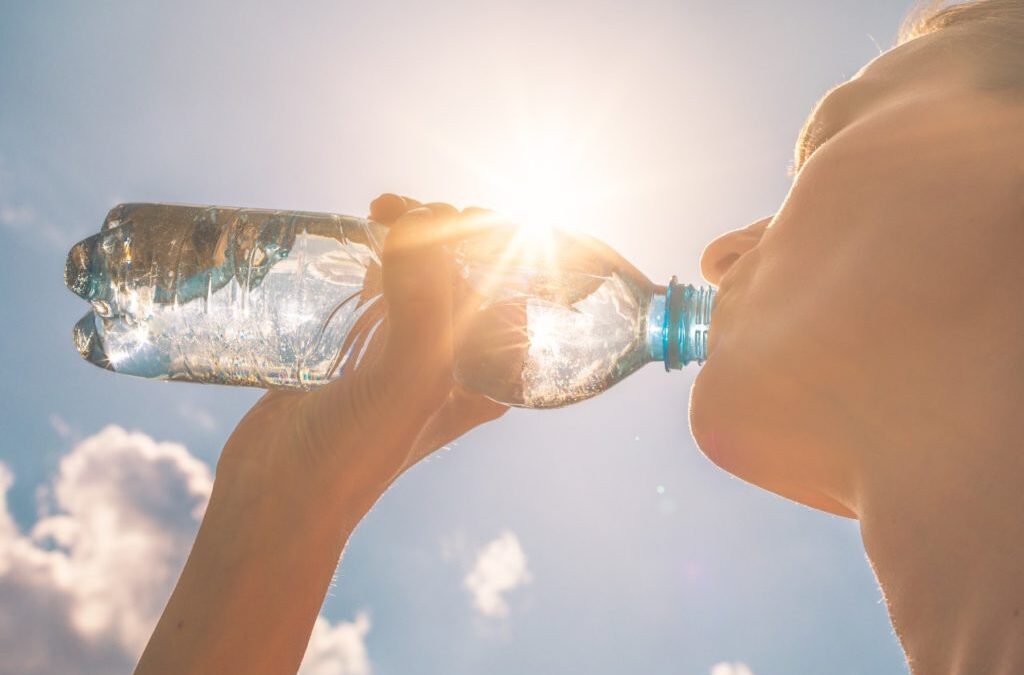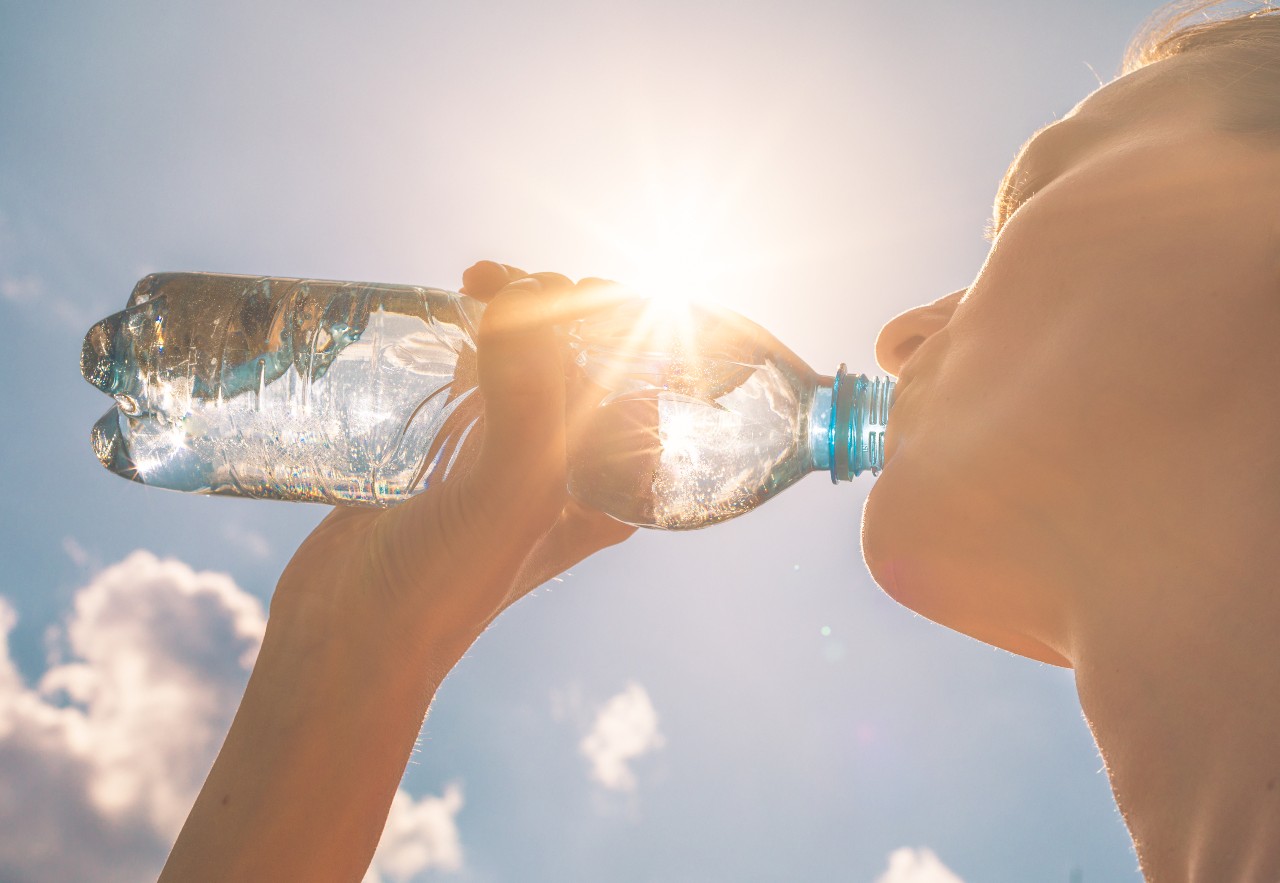We all know it is essential to stay hydrated. Did you know that the average adult is made up of between 55% to 60% water? Clearly, hydration is incredibly important to overall health. Water is necessary for every cell within our bodies. Water assists with temperature regulation and even helps transport carbohydrates and proteins within our bodies. It really is the elixir of life. With this information in mind, it is hard to believe that approximately 75% of Americans are chronically dehydrated and many don’t even know it! Innova Primary Care wants our patients to live healthy, thriving lives, and hydration is a crucial component of health. Read on for more information about hydration and what you can do to ensure that you are living a hydrated life.
Water is life
Drinking water doesn’t just quench your thirst; it literally keeps your body afloat. Water is needed for so many essential bodily functions. We touched on this in the intro, but along with temperature regulation, cell structure, and nutrient transport, water also lubricates the joints, assists the liver and kidneys with detoxification, keeps our eyes, nose, and mouth lubricated, and helps make vital nutrients accessible to the body. And it’s FREE! For the most part, water is accessible to almost everyone.
Am I dehydrated? How do I know?
With 75% of Americans in a chronically dehydrated state, it appears as though many of us don’t recognize the signs. Here are a few key things to look for:
- Fatigue
Chronic fatigue can have many sources ranging from chronic illness to sleep. When it comes to dehydration, fatigue may be a symptom of dehydration.
- Headaches
Dehydration can lead to headaches. Dehydration leads to tissue shrinkage. When it comes to the brain, this shrinkage can cause the brain to move away from the skull and press on nerves leading to a headache. Here’s the deal: headaches can occur from even mild hydration. Pay attention to how you feel and if you know you haven’t consumed enough water, drink up. This may be the answer to your headache woes.
- Dark Urine
Most of us are aware of the fact that dark urine is a sign of dehydration. Typical urine color can vary due to the yellow pigments in urine and the saturation of yellow color often depends on the amount of water you drink. The more water you consume the less yellow your urine will appear. Pay attention to your urine. You can learn a lot from the color and it may give you clues to your hydration levels. If you notice something that doesn’t look normal, please consult your physician. According to the Mayo Clinic, blood in the urine or urine that is orange or dark requires medical attention.
- Irritability and brain fog
Dehydration can cause cognitive dysfunction and an irritable mood and may even impact memory and concentration.
- Thirst
This one is pretty easy to identify. If you feel thirsty, you are dehydrated. It is important to stay on top of hydration rather than trying to catch up. This is especially important during and after exercise and in hot climates.
How much water do I need?
This is a complicated answer and the truth is it depends on the individual. A general rule of thumb is to be sure to consume half your body weight (in pounds) in ounces. For example, a 150 lb. individual should consume about 75 oz of water per day. While this rule works for most of us, you should also consider your activity levels and the weather.
According to the Mayo Clinic, we lose water through perspiration, urine, bowel movements, and even breath. However, needs change due to bio-individuality and activity levels so this means that the rule of thumb (1/2 your body weight in ounces of water per day) may not apply to you specifically.
Here are examples of when you might need more water
There are times when you will need more water. For example, high physical exertion requires additional hydration. Before physical activity, Penn Medicine recommends drinking at least 12 oz of water before your activity and at least additional water during the activity. This is incredibly individualized and may take some experimentation on your part.
Your environment will also determine your water needs. Those who work outside in hot humid climates will need more water than those who work indoors. The more sweating your body does will dictate your water needs.
Another thing to consider is your current health. Those who are suffering from fevers, diarrhea, and vomiting will need more water due fluid loss.
Finally, pregnancy changes your hydration needs. Both pregnancy and breastfeeding require more water so be sure to stay in tune with your body and consume water before you become dehydrated.
How do I know if I’m hydrated?
Again, this is a complex answer. However, the best way to know whether or not you are properly hydrated is to take a look at your urine and urination timing. Pale yellow is usually indicative of proper hydration along with the need to urinate every few hours.
Another way to test your hydration levels is the skin pinch test. Skin elasticity, also known as skin turgor, is a good way to determine hydration levels. Pinch a section of the skin on your forearm for a few seconds and see how long it takes to return to normal. If it takes longer for the pinched skin to return to normal, you may be dehydrated.
Hydration is essential for good health
Hopefully, we’ve given you some great information on the necessity of proper hydration and when to step up your water game. As always, if you have any questions, please do not hesitate to reach out and ask questions. Innova Primary Care longs to see you living your best life. Proper hydration is just one of the metrics you can use to measure your health, so drink up!






 About
About

 About
About About
About About
About
 About
About About
About

 About
About About
About About
About About
About










